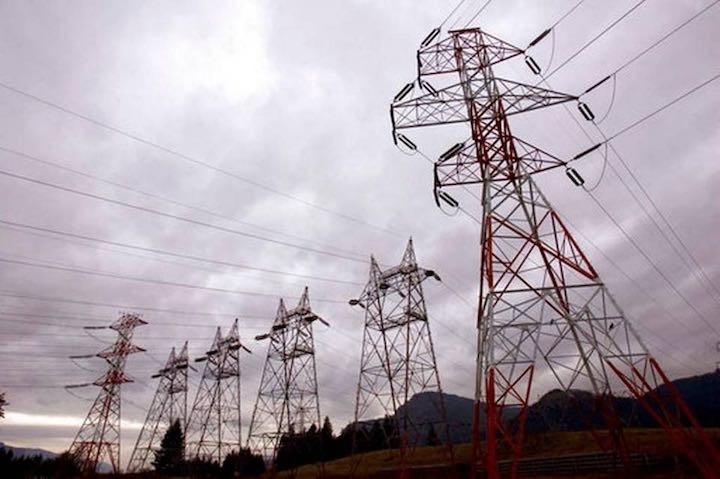forum
library
tutorial
contact

Don't Privatize the
Bonneville Power Administration
by Editorial Board
Yakima Herald-Republic, May 16, 2019
|
the film forum library tutorial contact |

|
Don't Privatize the
by Editorial Board
|
"I successfully fought Republican's efforts more than a decade ago to privatize Bonneville Power,
and I will fight this misguided attempt," Wyden said.
 Is the Trump administration once more proposing privatizing the Bonneville Power Administration, just as it did around this time last year and the year before -- and just like every president has considered doing as far back as the Reagan tenure?
Is the Trump administration once more proposing privatizing the Bonneville Power Administration, just as it did around this time last year and the year before -- and just like every president has considered doing as far back as the Reagan tenure?
Sadly, yes.
The good news, of course, is that the latest effort to sell off the Northwest's popular publicly owned electricity transmission system, part of President Trump's 2020 budget request, is likely to go nowhere in Congress -- again.
Rep. Dan Newhouse, R-Sunnyside, is one of the leaders of a bipartisan coalition of 62 congressional members who penned a letter to the House Committee on the Budget, urging that the grid remain under federal control. The letter noted that, rather than being a drain on the federal budget, the BPA is self-funding; it repays, with interest, the U.S. Treasury from electric rates set to recover taxpayer investments. BPA costs are paid for by customers who buy the electricity primarily through local public utilities.
"None of these costs are shouldered by taxpayers," the letter reads. "The entire BPA transmission system has generated approximately $30 billion in payments to the treasury."
Retaining BPA's public status is popular on both sides of the congressional aisle. Sen. Maria Cantwell, D-Wash., agrees with Newhouse. Last year, when the Trump administration tried the same power play, Cantwell told reporters the proposal would "hit middle-class families in the pocketbook and hinder small business growth across the Northwest."
In short, though Trump, like his presidential predecessors, has every right to propose pulling the plug and privatizing, but he shouldn't expect the plan to go anywhere.
So why are we wasting pixels and ink hand-wringing about a possible sell-off when it's likely to be DOA? Because if the public is not vigilant in advocating for the retention of the federally run hydropower system that has its problems but lights up much of the Western U.S. with consistently and reasonably priced rates, one of these years a president just might pull off a privatization plan.
That outcome, as Cantwell mentioned, would almost assuredly mean higher rates paid by customers and volatile ebbs and flows in service. So wide-ranging in Bonneville's reach that customers in Washington, Idaho, Oregon, California, Montana, Utah and parts of other Western states would be affected. All told, BPA operates three-fourths of the electricity transmission in eight Western states.
A 2017 report by the Northwest Power and Conservation Council bore out those concerns. The organization determined that electricity rates might soar by 40 percent under the proposed selloff. "Besides causing a direct and detrimental impact on power rates, the privatization of the BPA transmission system would leave the region vulnerable to market manipulation by creating artificial transmission restraints," the report stated.
In other words, it might set the stage for a sequel to the Enron price gouging and power hoarding of the early 2000s, destabilizing the Northwest economy and angering consumers.
The Trump administration's proposal, a onetime federal debt-reduction move, states otherwise. The administration has estimated BPA's assets would yield $5.2 billion over 10 years and that market-based rates would help lower consumer electricity costs. Its proposal reads: Reducing or eliminating the Federal Government's role in electricity transmission infrastructure ownership, thereby increasing the private sector's role, and introducing more market-based incentives, including rates, for power sales from Federal dams would encourage a more efficient allocation of economic resources and mitigate risks to taxpayers."
That, at first read, sounds reasonable, but economic studies don't support the Department of Energy's opinion. In addition to the NPCC report, Moody's Investor Services, a bond credit rating company, concluded that the current BPA public setup is stable and reliable and that selling to private concerns would lead to higher rates -- "New private owners would have higher capital costs that would need to be recovered in rates."
Especially vulnerable to private electricity market fluctuations would be people living in rural areas, according to the Congressional letter. That's because a private company would see it as a drag on its profits to support electricity suppliers in low-density areas with lesser yield.
In all likelihood, this latest plan to privatize a perfectly reliable and cost-stable energy system will fizzle out soon enough. But it is sure to rise again, no matter who occupies the Oval Office, so we must urge our federal representatives to hold the line on any future power grabs.
learn more on topics covered in the film
see the video
read the script
learn the songs
discussion forum
